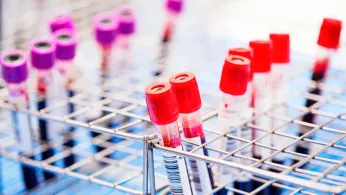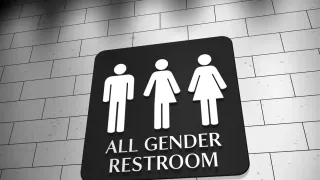
3 hours ago
San Francisco Reports 4.3% Increase in New HIV Cases, Raising Concerns Among LGBTQ+ Advocates
READ TIME: 3 MIN.
San Francisco’s annual HIV epidemiology report released September 24 revealed a 4.3% rise in new HIV diagnoses, with 146 new cases in 2024 compared to 140 in 2023 . This modest but notable increase comes after a decade of declining numbers and is prompting concern among city health officials, LGBTQ+ organizations, and advocates for marginalized groups.
The report highlights significant disparities: new diagnoses among Black residents increased from 27 in 2023 to 40 in 2024, and among cisgender women, cases jumped from 14 to 26 . Dr. Stephanie Cohen, director of STI and HIV Prevention and Control with San Francisco public health, commented, “We aren’t overly concerned about an increase in just six cases, but we are concerned that progress overall has slowed in recent years” .
The rise among Black residents and cisgender women highlights ongoing vulnerabilities. Many new cases occur in people who are homeless, have substance use disorders, or live with mental health challenges—communities that often face compounded barriers to care and prevention . LGBTQ+ organizations stress that intersectional approaches are essential to address these disparities, and that trans women, men of color, and other marginalized groups remain disproportionately affected.
San Francisco was once the epicenter of the U.S. HIV epidemic, with over 2,000 new cases annually in the early 1990s . By 2012, new diagnoses had dropped to 485, and in 2014, the city launched its ambitious “Getting to Zero” campaign, aiming for zero new HIV infections and zero HIV-related deaths .
Before the COVID-19 pandemic, San Francisco experienced steady declines in new HIV cases. However, pandemic-related disruptions to healthcare access and prevention services led to setbacks. Since 2020, annual new diagnoses have fluctuated between 140 and 174, and health officials have struggled to regain momentum, especially among vulnerable populations .
Despite the rise in new cases, San Francisco’s public health infrastructure continues to perform well in linking people newly diagnosed with HIV to care: *94%* were connected to healthcare within one month of diagnosis in both 2023 and 2024 . However, the percentage achieving viral suppression within six months declined slightly, from *84% in 2023 to 79% in 2024* .
Viral suppression—achieved through consistent antiretroviral therapy—means the virus is undetectable and cannot be transmitted to others. LGBTQ+ health advocates emphasize that maintaining high suppression rates is crucial for community health and for meeting the goals of “Getting to Zero.”
Of the 11,552 San Francisco residents living with diagnosed HIV at the end of 2024, roughly 75% are aged 50 or older, and nearly half are over 60 . Most older adults living with HIV contracted the virus years or decades ago, surviving what was once considered a death sentence. These long-term survivors face unique challenges—physical and mental health issues, social isolation, and stigma—that require specialized support .
Local LGBTQ+ organizations are responding to the new data with calls for targeted outreach and culturally competent care. The increases among Black residents and cisgender women highlight the need for programs that address intersectional vulnerabilities—combining HIV prevention with housing assistance, mental health services, and substance use support.
Transgender women, men who have sex with men, and people of color continue to be disproportionately impacted by HIV in San Francisco. Advocates urge city leaders to recommit to “Getting to Zero” and to ensure that federal policy changes or funding reductions do not undermine local efforts .
Dr. Cohen and other experts have voiced concern that proposed federal budgets and policy shifts could threaten years of progress. “I am deeply concerned about federal policy changes, as well as the proposed budgets currently working their way through Congress, and what impact those policies and funding reductions have had and will have on the communities we serve,” Cohen said .
San Francisco’s experience underscores the importance of comprehensive public health strategies. Key recommendations from community advocates and health officials include:
- Increasing access to PrEP (pre-exposure prophylaxis) and PEP (post-exposure prophylaxis), especially in communities of color and among transgender people
- Expanding culturally competent outreach and education
- Addressing social determinants of health, such as housing instability and access to mental health care
- Strengthening linkage to care and support services for newly diagnosed individuals
- Investing in programs for older adults living with HIV
As the city confronts these new challenges, LGBTQ+ advocates remain committed to supporting all individuals affected by HIV, honoring the resilience of long-term survivors, and ensuring that every community member has access to affirming, high-quality care.






